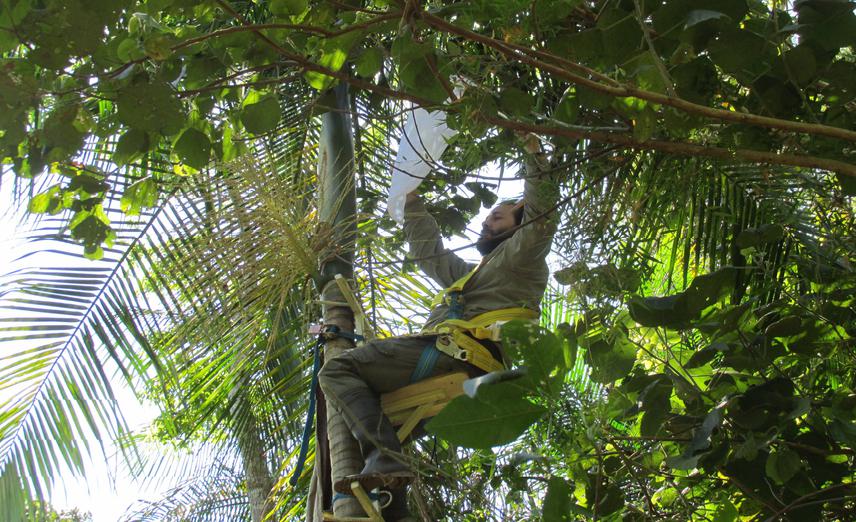Fernando Zamudio
Other projects
25 Feb 2008
Native Stingless Bee (Apidae: Meliponinae) Diversity and Ethnobiology in the Atlantic Rain Forest of Argentina
This project aims to evaluate the pollination ecology and the management practices around Palmito (Euterpe edulis) and the role of stingless bees in Palmito seed production.
Euterpes edulis (Palmito) is a palm species of important ecological and economic value in the South American Atlantic Forests. The Palmito provides food for wildlife and respectively its heart and seed are used for two commercials aims; human consumption and as ornamental. Moreover stingless bees are insects ecologically and socially important for both, by their role in pollination of flowers and by the honey production, that its used locally as a food and medicine.

Insect sampling
Current exploitation of Palmito in Argentina is performed in a non-sustainable fashion; it is extracted from the forest and no cultivars have yet been established. We will study the pollination ecology of the Palmito to determine the level of dependence on insect pollination and to assess the relative efficiency of native stingless bees and exotic pollinators for seed production. Estimating the economic value of seed production under these pollination treatments, we will be able to evaluate the economic impacts product of changes in pollination services.
Simultaneously, we will assess the cultural and socioeconomic dynamics for commercial exploitation of the seeds by local rural communities. For these we will realize two complementary tasks: on one hand will be implemented different closing treatments in inflorescences palm (with mesh fabrics of different sizes) to assess the efficiency of stingless bees and the exotic Apis mellifera in pollinating flowers. At the same time we will be installed video cameras to determine the frequency of visits of pollinators to flowers and we will conducted bee samples with hand nets to know the diversity of these.
Moreover interviews will be carried with local harvesters of palm seeds, to known management practices and dynamic trade around of palm seeds. So we will analyse local perceptions of the role of insects in the interaction with the flowers of the Palmito to learn how this interaction is locally interpreted. Thus we will generate biological, cultural, and management information that will provide the basis for developing use and conservation policies of the Palmito and the stingless bees at the local scale.